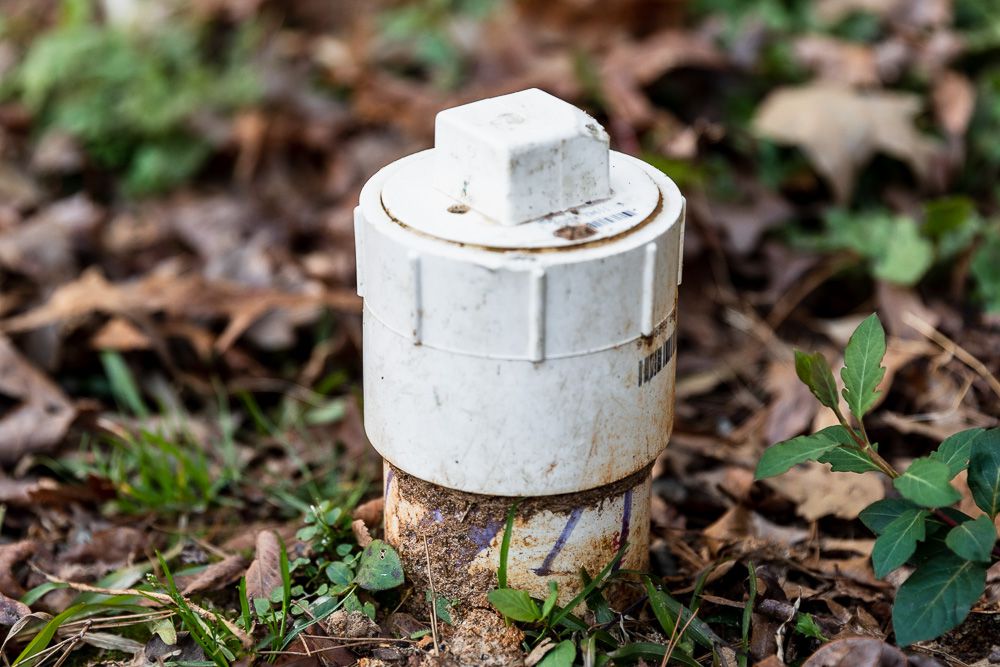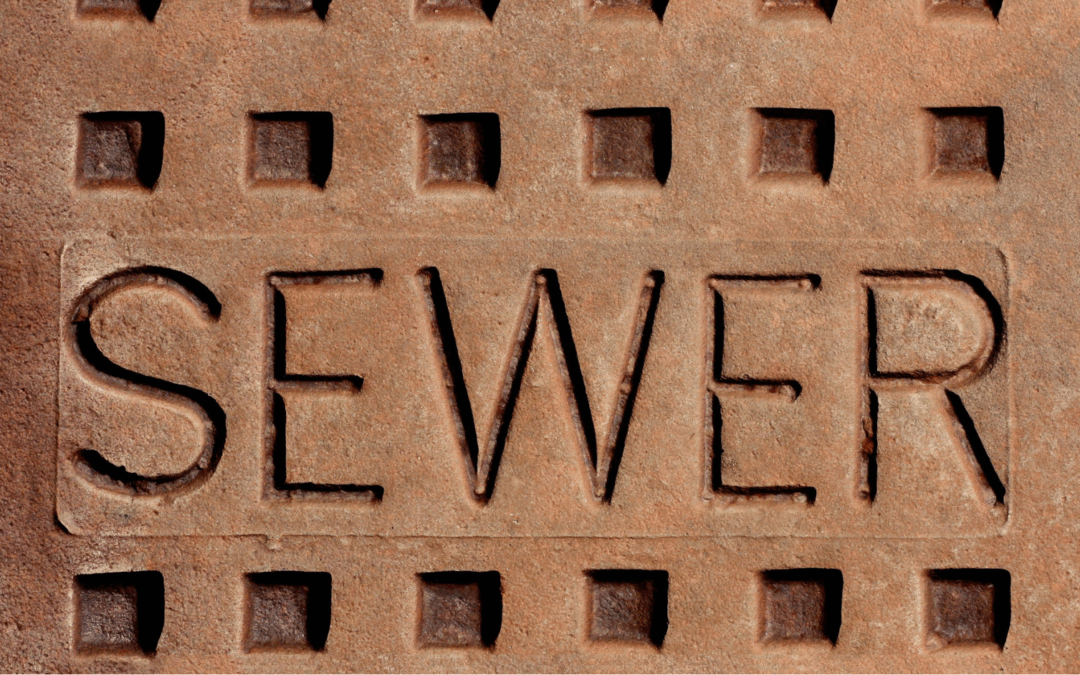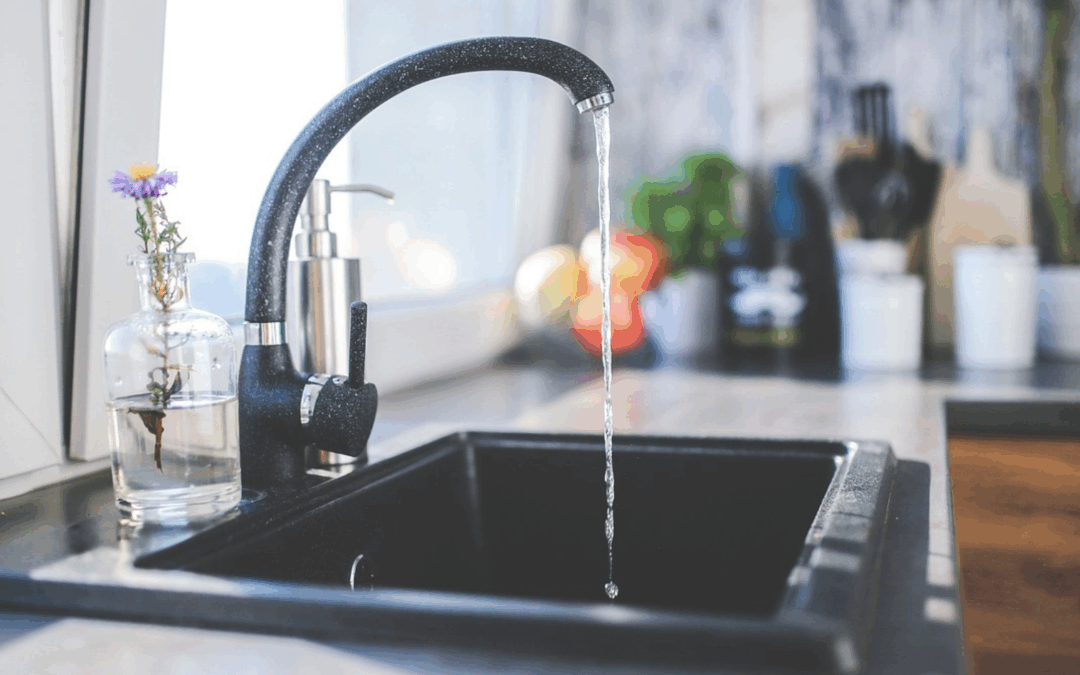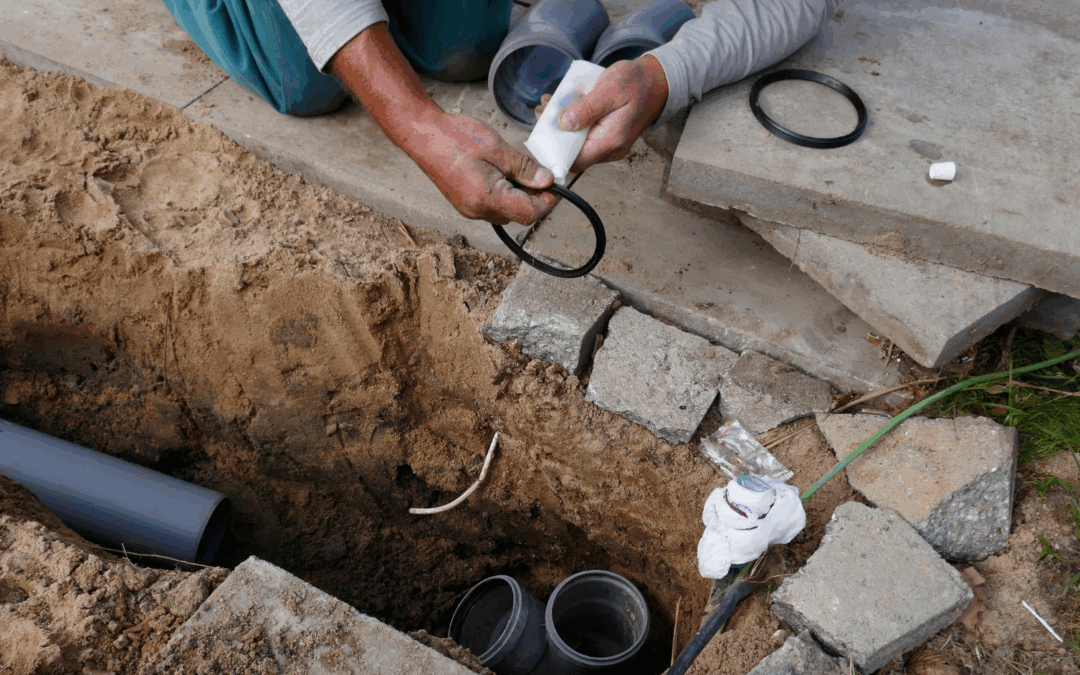Maintaining the sewage drain is one of the essential things we should never overlook. Whenever your sewage drain stops working, it turns out to be more than just a mere inconvenience.
It’s not fun or pleasant to deal with contaminated water and sewage backups can cause extensive and irreparable damage to your home. In this blog, we’ll give you five vital tips for maintaining your sewage drain to avoid such inconveniences.
The Importance of Understanding Your Sewage Drain System
Have you ever wondered what happens to the wastewater after you flush your toilet or wash your dishes? Most people don’t think twice about their sewage drain system until something goes wrong.
Schedule Service Online
Get a free estimate so you know what you're signing up for
"*" indicates required fields
For Emergency Services Call: 410-255-9300
Understanding how your sewage drain works and the importance of proper maintenance can save you from costly repairs and health hazards.
What is a Sewage Drain?
A sewage drain system is an underground system that carries wastewater from your home to a central location where it is treated, processed, and eventually released into the environment.
Your sewage drain system is a vital part of your property’s infrastructure, and it’s important to understand how it works.
How Does it Work?
Your sewer drain system relies on gravity to move the wastewater away from your home. Wastewater flows through your pipes and eventually arrives at the main sewer line which joins a larger network of pipes.
These large pipes lead the wastewater to a treatment facility where it is processed and treated before being released into the environment.
Why is Proper Maintenance Important?
A malfunctioning sewage drain system can be a severe health hazard as it can lead to dangerous sewage backups. Proper maintenance not only prevents dangerous blockages but also prolongs the lifespan of your system, ultimately saving you money in the long run.
Regular maintenance can also help you identify potential issues before they turn into costly repairs.
What are Some Signs of a Malfunctioning System?
There are a few signs that you can look out for to identify a malfunctioning sewage system. An unusual smell around your property could be an indication of a clogged drain.
Slow draining or gurgling toilets could also be signs of blockages in your system. In some cases, the appearance of water around your drains could be an indication of a more severe blockage.
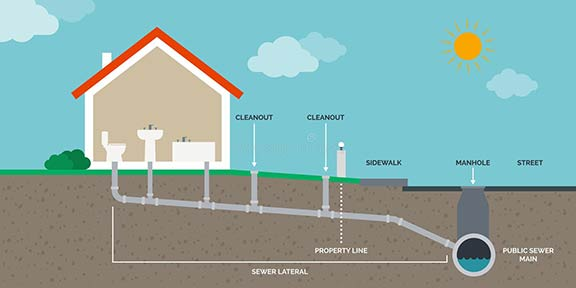
Understanding the Difference Between a Sewage System and a Septic System
When it comes to wastewater management, homeowners have two options: a sewage system or a septic system.
While both work towards the same goal of treating and disposing of wastewater, they have significant differences. Understanding these differences is crucial for homeowners to make the right choice for their homes.
Definition of a Sewage System and a Septic System
A sewage system is a centralized system that uses pipes and treatment plants to collect and treat wastewater from several households. It’s a complex network of underground pipes that connects homes and commercial buildings to a municipal wastewater treatment plant.
On the other hand, a septic system is a small, decentralized system that’s installed on a property to treat and dispose of wastewater. It’s composed of a septic tank, a drainage field, and soil.
Operational Differences
The primary difference between a sewage system and a septic system is how they operate. In a sewage system, wastewater collected from multiple properties is pumped into a central treatment plant, where it’s treated and disposed of in compliance with local and federal environmental regulations.
In contrast, a septic system treats wastewater on the property where it’s generated. Wastewater flows from the home into a septic tank, where solids settle, and bacteria break down the wastewater. The effluent then flows into the drainage field where it’s further treated by the soil.
Maintenance Differences
Another essential difference between a sewage system and a septic system is the maintenance requirements. A sewage system is maintained by the municipality or utility company responsible for the system.
Homeowners don’t have to worry about maintenance or repairs as long as they’re billed for the service. In contrast, a septic system requires regular maintenance from the homeowner to function correctly. This maintenance includes regular pumping, inspection, and repair of any issues that could arise.
Cost Differences
Before deciding, homeowners must also consider cost differences. The installation cost of a sewage system depends on the distance between the home and the nearest municipal sewer line.
In contrast, installing a septic system is relatively affordable since it requires only a few components. However, homeowners must consider the cost of regular maintenance, which can be higher for a septic system than a sewage system.
Environmental Impact Differences
Finally, there are significant environmental differences between a sewage system and a septic system. A central sewage system treats wastewater to a higher level than a septic system.
Consequently, a properly functioning sewage system has less of an environmental impact since it doesn’t release pollutants into the surrounding environment. A septic system, on the other hand, requires the effluent to be filtered by soil, which could lead to contamination of groundwater if the system fails.
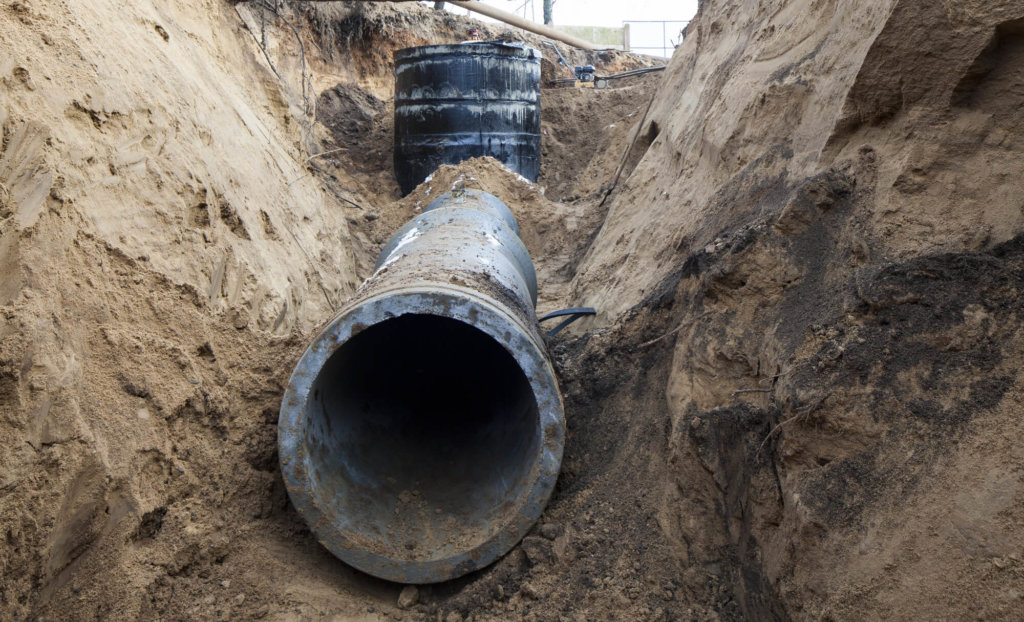
5 Vital Tips For Maintaining Your Sewage Drain
Clean the Drain Regularly
Sewage drains usually carry wastewater from toilets, showers, kitchens, and other drains in your home. When it’s not cleaned frequently, the drain can clog, causing water to back up. Regularly cleaning your drain is an excellent first step in maintaining it.
Pouring hot water down the drain can be effective in maintaining the drains. You can also use some specialized products specifically designed for removing clogs in your drain.
Be Careful What Goes Down The Drain
Be mindful of what you flush down the drain pipe as it can affect the drain’s ability to function effectively. Do not flush feminine hygiene products, grease, and oils into your sewer lines.
If you have kids at home, ensure that they don’t flush toys and other things that don’t belong in the drain lines. A simple rule of thumb is that if it’s not toilet paper or waste, it shouldn’t be flushed down the drain (this includes paper towels).
Regular Professional Inspections
It’s always a good idea to have a professional inspect your sewage main drain regularly. They can pinpoint any potential issues before they become problematic and costly repairs. For the best results, we suggest getting an inspection once every two years.
Repair Leaks immediately
Anytime you see water leaking from the drain, get it repaired immediately. Leaks lead to the growth of molds. When it’s not taken care of, it can cause lasting damage to your home. If you’re not sure what to do, calling a professional plumber can help you save money in the long run.
Maintain Your Water Quality
Poor water quality can also cause clogging in your sewage drain. Many home appliances like the washing machine, dishwasher, and water heater have sediment build-up and can cause damage to your drain and pipes. To maintain your water quality, flush your water heater regularly and use a quality water filter to remove any impurities.
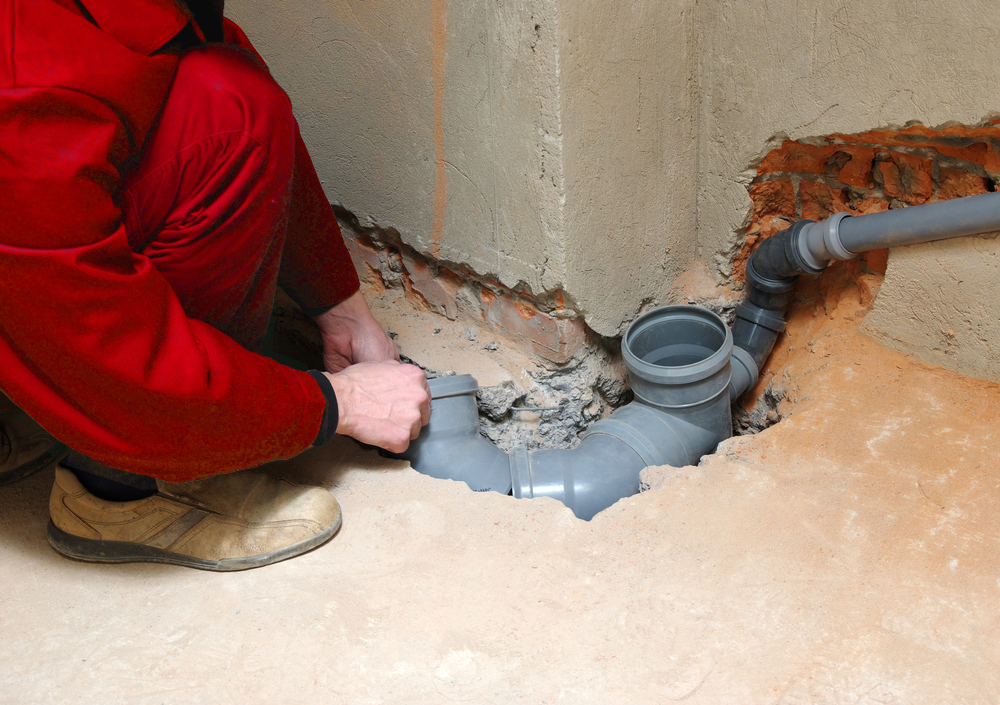
Common Problems with a Sewage System
If you’re a homeowner or a property owner, you know how important it is to maintain your sewage system. This is a crucial part of your home and property’s functionality, and any issues with it can quickly become a major headache. By understanding these issues, you can take proactive steps to ensure that your sewage system remains in good working order.
Clogs and Blockages
One of the most common problems with a sewage system is clogs and blockages. This can happen for a variety of reasons, including flushing inappropriate materials down the toilet or pouring grease down the sink. When clogs and blockages occur, it can cause your sewage system to back up, leading to unpleasant odors and potential health hazards.
The best way to prevent clogs and blockages is to be mindful of what you’re flushing or pouring down your drains. Additionally, regular maintenance by a professional can go a long way in keeping your system free from clogs.
Tree Roots
Tree roots are another common problem with a sewage system. As trees grow, their roots can wrap around and invade pipes, causing damage and blockages.
This can lead to backed-up sewage and potential damage to your property. If you have trees near your sewage system, it’s important to have them regularly inspected by a professional to ensure that their roots aren’t causing any issues.
Old or Damaged Sewer Pipes
Over time, a sewage pipe can become old and damaged. This can happen due to wear and tear, shifting soil, or other factors. When this occurs, it can cause cracks or breaks in your sewage system, leading to leaks or blockages.
If you suspect that any sewer pipe in your home is old or damaged, it’s important to have them inspected by a professional plumber as soon as possible. This will allow you to identify any issues and prevent potential damage from occurring. If the city sewer main line is the cause of the problem, be sure to contact the city immediately.
Septic System Failure
If you have a septic system, it’s essential that it’s working properly. If it fails, it can lead to backed-up sewage and put your health at risk. One of the most common causes of septic system failure is lack of maintenance.
Regular maintenance by a professional can help you avoid issues and ensure that your system is properly functioning. A sewer system with problems can lead to sewer gases in your residential home, so maintain your plumbing system properly.
Environmental Factors
Finally, environmental factors such as heavy rains or flooding can also cause problems with your home’s plumbing system. This can cause the system to become overwhelmed and back up, leading to health hazards and damage to your property.
If you live in an area prone to heavy rain or flooding, it’s important to have your sewage system inspected regularly to ensure that it’s able to handle these conditions.

Do You Need a Professional Plumber?
If you’re facing standing water or suspect there may be a leak in your house’s sewage system, don’t hesitate to reach out to us at Maryland Sewer and Plumbing. Our team of professional plumbers has the experience and expertise to replace or fix a failing drain line or address any other issues you may be facing.
We know that dealing with sewage problems can be messy and unpleasant, which is why we strive to provide efficient and effective solutions. Whether you need us to address a leak, replace a faulty component, or track down the point of a blockage, we’re here to help. So if you’ve noticed issues with your sewage system, including problems with your floor drain, reach out to us today and let us help you maintain your home.
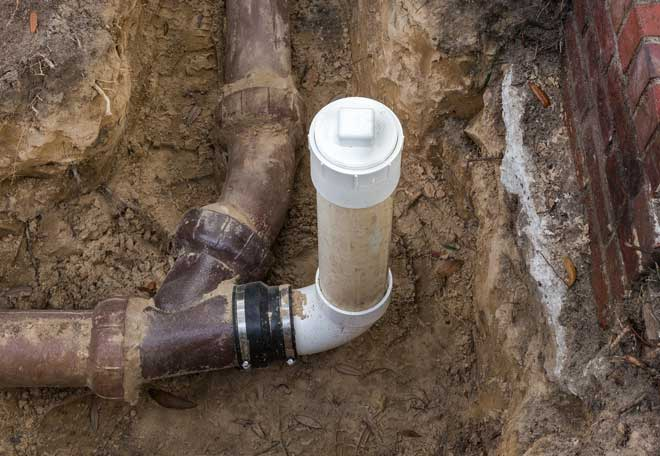
Conclusion
Maintaining your sewage drain is vital to prevent costly repairs and damage to your home and health. The above tips can help to keep your drain functioning optimally, ensuring that you don’t encounter any unpleasant experiences in the long run. Remember, a little maintenance and care can go a long way in keeping your home running.

